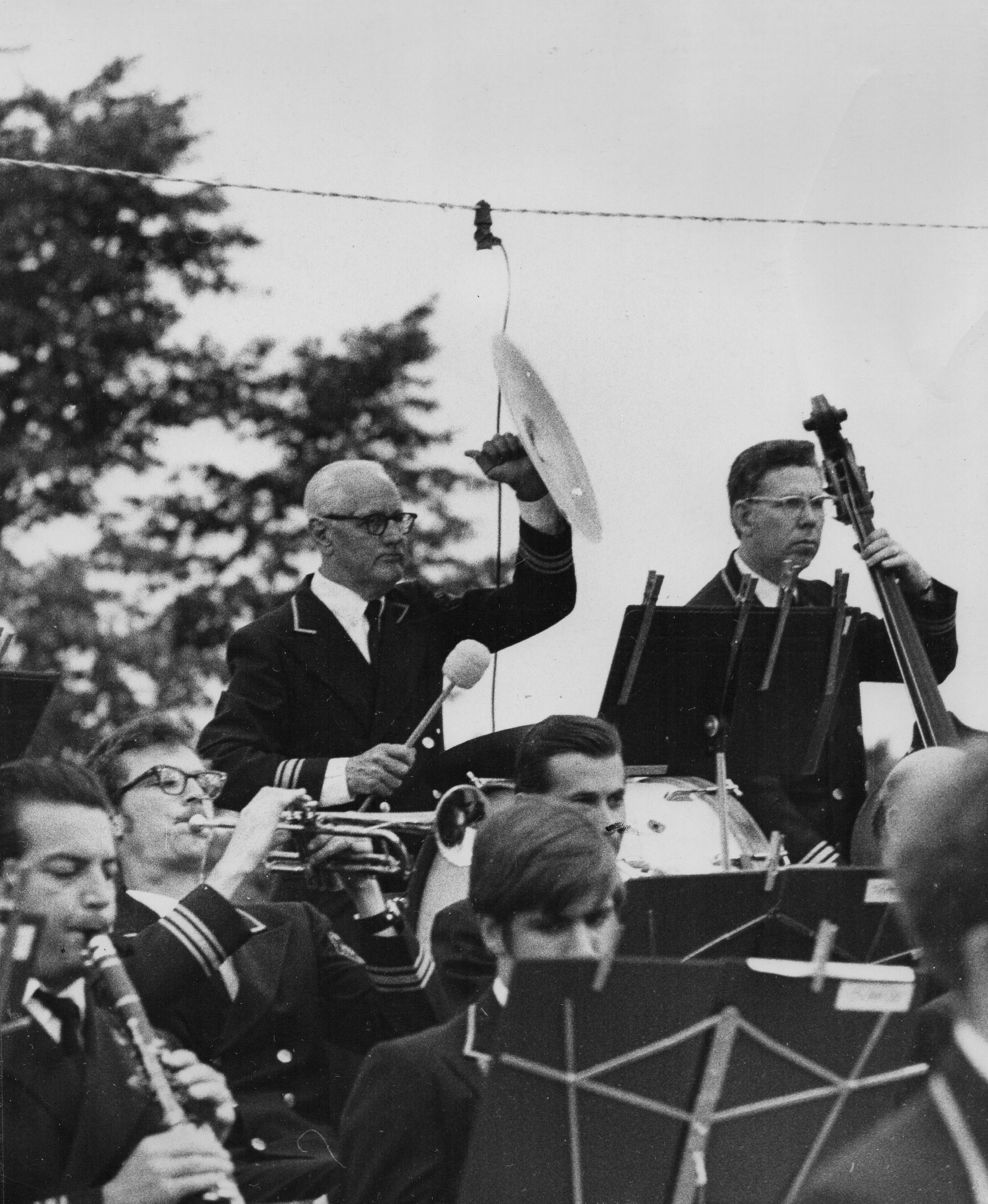The musical tradition that Iowa is known for is that of local bands performing on concert series and for ceremonial occasions. This tradition was made world-famous through the works of Meredith Willson of Mason City in The Music Man and Karl L. King of Fort Dodge, the leading composer of march music after John Philip Sousa. By 1946 local arts, business, and civic leaders agreed that in Iowa’s capital city there was a need for a concert band of the quality of the finest local performing arts groups that all of the people of the community could enjoy. As a result, the Des Moines Municipal Band Project, Inc. was chartered.
“… to establish, maintain, and develop for the city of Des Moines … for the purposes of providing for the citizens of Des Moines classical and popular music and to inspire in the citizens of Des Moines an appreciation of good music. The corporation shall be benevolent and charitable, and shall devote its time exclusively to charitable purposes.”
Governor William Beardsley and the State Executive Council granted permission for the concerts to be held on the west State Capitol grounds. Funding was provided by the city of Des Moines through the Parks Department and a grant from the U.S. Recording Industries obtained through the Des Moines Musicians’ Association.
The Sunday evening concert series premiered on June 15, 1947 the same way it does today – with the signature theme “Music Under The Stars” composed by Lorrain E. Watters, supervisor of instrumental music for the Des Moines Public Schools. In 1948 Gordon Bird, director of bands at Drake University, was appointed the first permanent conductor. He was followed by Robert W. Bagley in 1953, Karl L. Killinger in 1975, and Daniel Hartzer in 1986.
In 2011 the name of the principal ensemble was changed to the Des Moines Metro Concert Band to reflect the fact that Music Under The Stars serves the entire metropolitan area. Clarence Padilla, Professor of Music and Chair of the Department at Drake University, was appointed to the new position of Music Director and Conductor. A big band that occasionally was featured for a selection during the Municipal Band programs was spun off into a new group – the Metro Big Band - making the programs even more diverse and entertaining for everyone.




